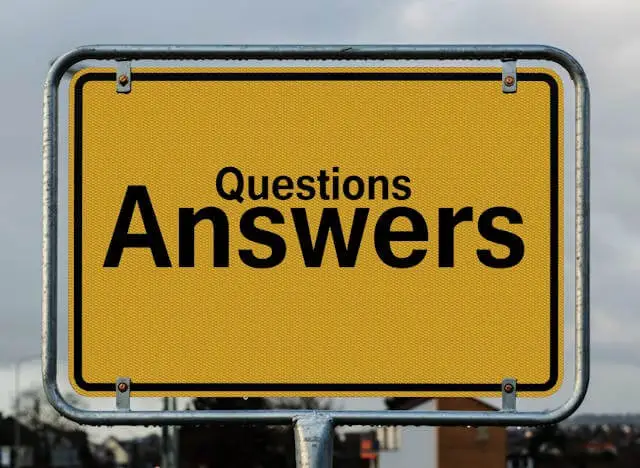Digital marketing is always evolving. While traditional SEO has helped businesses rank on Google for decades, Google is no longer the only way people search. ChatGPT, Perplexity, and even Google’s own Gemini are changing how people find information online.
Your customers can now head straight to AI chatbots with their questions and get instant (and conversational) answers. If you’re ignoring AI SEO optimization, you’re not speaking to a huge chunk of your audience.
AI Search is Exploding, AI SEO Hasn’t Caught Up
ChatGPT reached 100 million users in just its first two months. Perplexity reports serving 100 million queries a week. And we’re sure you’ve noticed those Google Gemini AI summaries at the top of search results.
It’s easy to dismiss AI as a business fad or tech enthusiasts experimenting with new tools. But you’d be wrong! Everyone from students and everyday consumers to top business pros is using AI as their go-to information source. New data suggests that 42% of “knowledge” professionals are using AI for research at least weekly.
If nearly half your target audience is using AI search tools, and you’re still sticking to only traditional SEO and don’t have content optimized for AI search, then you’re almost back to square one. Invisible to the audience who is looking for you!
The Fundamental Differences in Traditional SEO vs AI SEO

You may be wondering what the difference even is. After all, if it’s already optimized for search, do we really need AI SEO optimization as well?
The short answer is yes. Traditional SEO and AI SEO focus on different things. And like a gorgeous cocktail dress pinned together with clothes pegs and hope at the back, if you’re not planning for both, you don’t have a marketing strategy at all. You’re just hoping for the best.
Let’s recap the differences.
Traditional SEO is all about the SERPs, or search engine results pages. You optimize for keywords, build backlinks, and create content that is understandable to Google’s algorithm. There’s a simple goal: hit the first page in relevant searches.
AI SEO optimization is a little different. For starters, there’s no Page 1 in AI chatbot results, nor a ranked list of websites. Instead, the chatbot is synthesizing information across sources to offer direct answers. If your content is used as a source, you might receive attribution. If not? You remain invisible, even if your traditional SEO rankings are great.
This means a shift in how content strategies work. Traditional SEO rewards comprehensive content that covers related keywords. AI SEO rewards authoritative, well-structured content that clearly answers specific questions.
The Science Behind Generative Engine Optimization
Generative engine optimization is best thought of as the next evolution in search strategy. Unlike the traditional search engine, which matches keywords to web pages, generative AI systems better understand context, nuance, and the intent of the piece.
They analyze your content’s structure, but also pay attention to fact accuracy and source credibility. The priority is clear, direct content that gives answers, rather than how many keywords are stuffed in.
Recent research from Princeton University, while focusing on how hidden bias can creep unwittingly into AI-generated answers, made clear the factors that AI systems favor:
- Clear Headings
- Factual Accuracy
- Recent Publication Dates
- Authoritative Sources
When your content scores highly on those factors, it’s more likely to be cited in AI responses.
The Real-World Impact and How Businesses Are Adapting
Smart companies are already preparing to shift their marketing strategies. Even in its 2022 state of the marketing industry report, HubSpot was encouraging readers to restructure their content to answer specific questions, not just target broad keyword phrases. Their focus on AI SEO optimization has grown with later reports, too.
While the company itself hasn’t officially confirmed it, e-commerce brand Warby Parker, which has long been known for its innovative and customer-forward marketing strategies, is widely believed to have redesigned their product descriptions to work better with AI systems. There was certainly a swing away from keyword-heavy descriptions to more conversational, question-answering formats made a few years ago, when the company started introducing other AI-powered tools to the platform. Whether it was deliberate or simply a facet of their marketing research, this AI SEO-friendly approach has helped them capture more voice search traffic as well as AI-generated recommendations.
Rather than dancing around topics with keyword variations, this is the era where content that answers questions will be king. AI SEO optimization techniques that prioritize the user and their intent over search volume are here to stay.
The Technicalities: What AI SEO Optimization Really Needs
AI SEO optimization needs a different technical approach from traditional SEO. Schema markup (or the code that structures data on your website) is now a top priority. AI systems rely heavily on this structured data to understand content and context.
Likewise, content architecture now matters. AI systems prefer clear information hierarchies. Headers should pose questions and answer them directly. Lists and bullet points help the AI understand information more effectively than dense paragraphs.
And page loading speed matters more than ever for AI SEO. AI crawlers typically have shorter timeouts than traditional SEO search bots. A slow load means AI skips your content entirely.
In short, generative engine optimization needs fresh content strategies. AI heavily prioritizes recent content. Once it’s older than six months, it may still rank well in traditional SEO, but AI will ignore it.

What to Know About Voice Search and Conversational Queries
We’re also seeing a shift in how people search. Voice search through AI assistance is on the rise. People don’t speak the same way they type. Voice queries are typically longer, conversational, and question-based.
Think of a traditional SEO string, like “best pizza Chicago”. That isn’t going to tell AI a whole lot when it is being asked “What’s the best pizza place in Crystal Lake that’s open late night?”.
Different keyword strategies are needed, with AI SEO optimization focusing on natural language, question phrases, and conversational tones, not choppy keyword combos.
How You Measure Success in the AI SEO Era
Of course, traditional SEO metrics like keyword rankings and click-through rates haven’t gone away. Those search options are still thriving. However, they don’t capture what AI SEO really needs. Remember, AI typically offers answers without the user clicking through to the source website.
We’re now seeing a world where new metrics are at play:
- Brand mentions in AI responses
- How often you are cited
- Direct traffic from AI platforms
Plus, traditional SEO tools haven’t caught up. While there are some burgeoning AI SEO optimization trackers, it is still a fragmented measurement landscape.
Forward-thinking businesses will need to track AI-generated referrals apart from their traditional search traffic. It’s time to think beyond keywords and start watching out for those AI citations and brand mentions. As AI SEO develops, we’ll doubtless see new tools to help evolve, too.
AI SEO: What You Need To Know
AI SEO isn’t replacing traditional SEO. It’s augmenting it. As Google drives AI integration into search results, even “traditional” search is now more AI-driven.
Most businesses are looking at hybrid strategies. They’re keeping their strong traditional SEO foundations, but building up their AI SEO optimization alongside it. Start by auditing your current content through an AI lens. Does it answer specific questions clearly? Is it structured for easy AI parsing? These simple changes can dramatically improve your visibility in AI-powered search results.
It’s likely we will see generative engine optimization become a standard marketing practice, probably within the next two years. For the companies optimizing for AI now, there will be significant advantages over the competitors who wait and see.
Traditional SEO alone is no longer enough. Businesses need to introduce AI SEO optimization and generative engine optimization. Those who act now are the ones who will thrive and see their marketing strategies hold strong in the AI era.
Recent Posts
-
Published on: December 16, 2025
-
Published on: December 2, 2025
-
Published on: November 25, 2025








